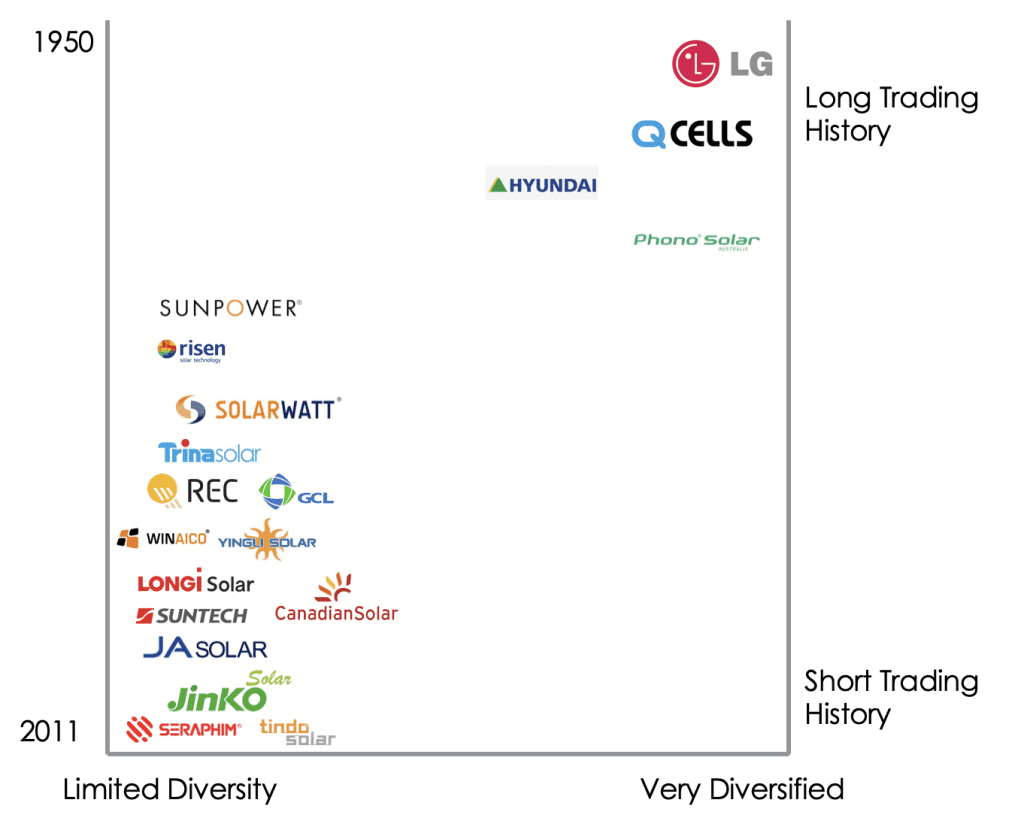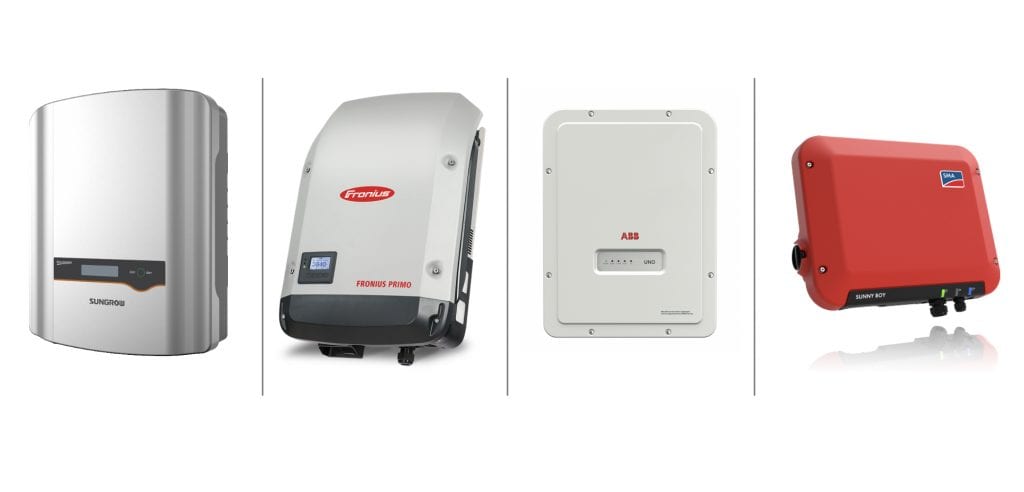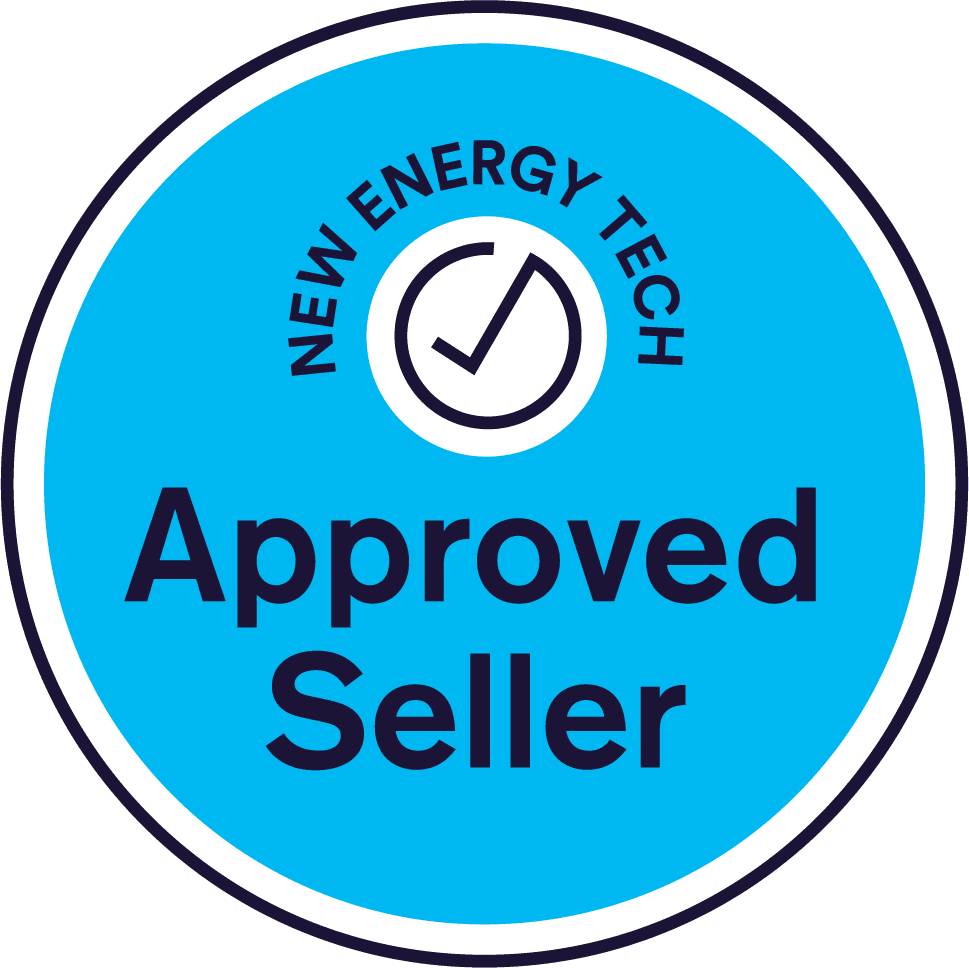The most efficient solar panels 2022 (and why it probably doesn’t matter to you).
This article shows the most efficient solar panels in 2022 and lists the top 15 in order of their efficiency rating as per their datasheet at the time of writing.
It also explains what the efficiency rating actually means, and highlights why it is nowhere near as important as some sales and marketing campaigns make out.
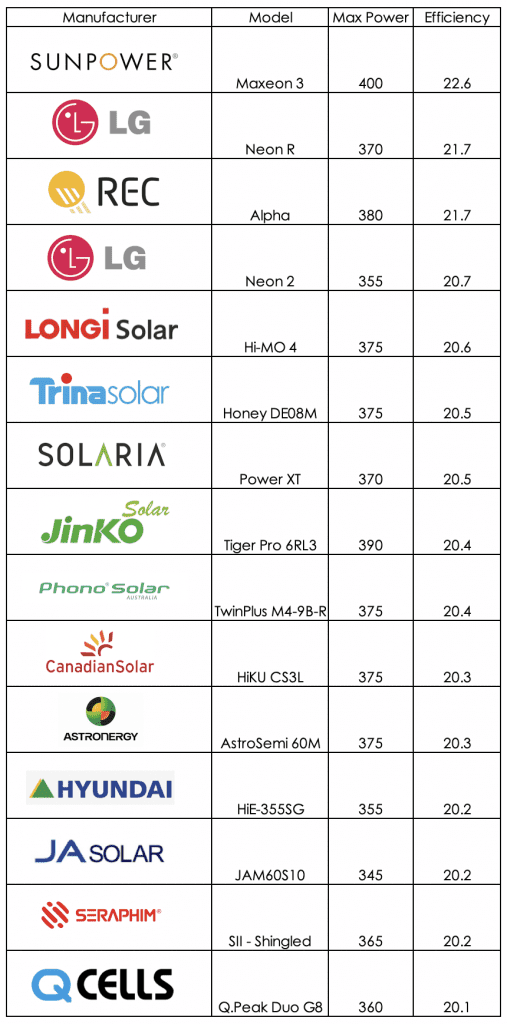
Firstly, let’s appreciate the really clever folks at these manufacturers who are constantly innovating and engineering new ways to increase the efficiency of a solar panel. The increased efficiency of a solar cell represents progress that we can all see and benefit from in the solar industry. If you go back to 2010 you will find the most efficient solar panel that was readily available on the market was rated at 16%. This panel was manufactured by Solland Solar and never made it to the Australian market.
Fast forward to today and the most efficient solar panel is the Sunpower Maxeon 400w – rated at 22.6%. That represents an increase of 35% in only 10-years.
This is wonderful and we take out hats off to Sunpower who have topped the efficiency charts for quite a few years now! But, what does this really mean to someone looking to purchase solar panels for their home or business in 2022? There are pros and cons of all solar panel brands to consider and efficiency is only one factor to think about.
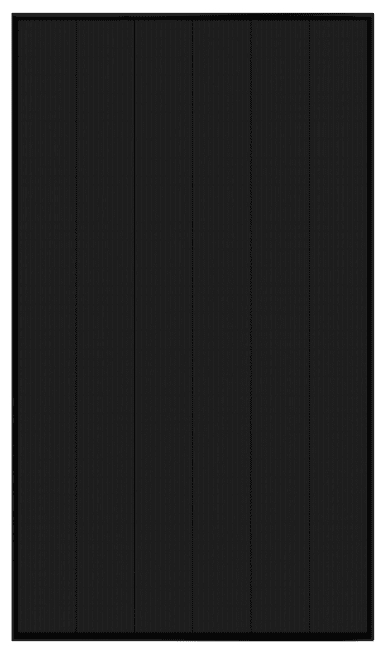
Image above shows a Sunpower Maxeon solar panel.
The efficiency of a solar panel is often used as a major selling point when companies are pitching their products to home or business owners. However, installing a 10kW solar array with the most efficient solar panel on the planet, does not technically mean you will produce more useable electricity than installing a 10kW solar array with the 15th most efficient solar panel on the planet. Buyers in 2022 seem to be putting too much emphasis on the efficiency of the solar panel, and not fully understanding what it really means.
So, what does it mean? Well, simply put, the efficiency of a solar panel is calculated by watts divided by metres squared.
Sound complicated? Think of it this way…all this equation is saying is that the efficiency of the solar panel is calculated by the number of watts divided by how big it is. Which is why a 10kW solar array, is still a 10kW solar array, regardless of the efficiency of the individual solar panels. What it really means is, the Sunpower 10kW array, will take up slightly less space than the other less efficient 10kW system. But they will both still be 10kW overall.
So, the efficiency rating of each panel does not directly relate to how much energy you will produce with you 10kW solar system – They are both still 10kW solar systems, regardless of the efficiency rating!
The table below gives you an indication of how much energy you can produce with different size solar system in different locations.

Let’s have a closer look at the top 15 solar panels in order of efficiency.
- Sunpower Maxeon 3– 22.6
- LG Solar Neon R – 21.7
- REC Alpha – 21.7
- LG Solar Neon 2 – 20.7
- Longi Solar Hi-Mo 4 – 20.6
- Trina Solar Honey DE08M– 20.5
- Solaria Power XT – 20.5
- Jinko Solar Tiger Pro 6RL3 – 20.4
- Phono Solar TwinPlus M4-9B-R– 20.4
- Canadian Solar HiKU CS3L– 20.3
- Astronergy AstroSemi 60M – 20.3
- Hyundia Green Energy HiE-355SG – 20.2
- JA Solar JAM60S10 – 20.2
- Seraphim SII Shingled – 20.2
- Q Cells Q.Peak Duo G8 – 20.1
Firstly, if we compare the number one panel (Sunpower Maxeon 3) to the bottom panel on this list (Q Cell Q,Peak Duo) the difference is only 2.5%, which does not relate to massive numbers when talking about how much space you will save. When we compare the number two solar panel on this list (LG Neon R) to the last Q Cell solar panel the difference is only 1% – which is very, very minimal.
So, while there is a genuine advantage using more efficient solar panels to save roof area, the “real world” difference is quite minimal. It is still important that the efficiency increases because installing a solar panel from 2010 (which was 35% less efficient) would make a fairly sizeable difference in the roof area needed. But when buying solar panels today, we are comparing with other solar panels from today, not solar panels from 2010 – and the difference is very minimal between the top brands. So, unless you have restriction with the roof area available, the efficiency rating becomes far less important than most think.
When comparing solar panels from the top brands today, the efficiency, and therefore the roof area needed, is extremely similar!
More importantly, there are so many other things to consider when choosing which solar panel is best for your home or business such as:
- How reliable will the manufacturer be for long-term warranty support?
- What are the warranties?
- How much do they cost?
- How long have they been trading?
- Do they have Australian offices for support if needed?
- How reliable are they going to be in the long-term?
Aside from the actual solar panel itself some other things to prioritise above the efficiency of the solar panel are:
- Who is installing the solar panels for you?
- How credible are they?
- How long have they been in business for?
- What inverter are you using (and apply the same question here as you would for the solar panel)?
- What type of racking will be used to fix the panels to your roof?
- How can the system be remotely monitored?
- What is the process for getting support if you need help in the future?
In addition to this, the “real world” efficiency of your solar system will also depend on the following:
- The type of solar panels installed
- The type of inverter installed
- The orientation of solar panels
- The tilt angle of solar panels
- The quality of the workmanship
- The cables used
- The length of cable runs
- Any shade or debris
- Your consumption profile (for export limited solar systems)

The way your solar panels are installed is equally as important as the most efficient solar panel.
The last thing that is worth noting here is that the efficiency of a solar panel does necessarily relate to the overall quality and desirability of the product. Sunpower and LG sit at the top of this list and there is no question they are both very good quality overall products, as well as being the most efficient. However, Q Cells also sit at 15th on this list below brands such as Longi, Jinko, Solaria, Trina, Phono, Astronergy, Hyundai, JA Solar, Canadian Solar and even Seraphim. As an overall product offering, taking all of the above points into consideration, you would probably have a hard time finding someone credible who would suggest Q Cell Q.Peak panels do not sit above all of these brands for overall product quality.
The summary: It is important to get an efficient solar panel installed. But in the real world there are lots of other things that are more important to consider.
Remember, the efficiency of a solar panel really only tells you how much energy it can potentially produce in the space it uses up!
Here are some other links you may find useful:

